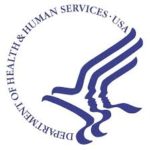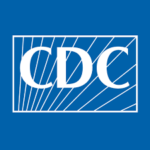The following is the latest health policy news from the federal government for July 19 – August 5. Some of the language used below is taken directly from government documents.
 CMS – Medicare Payment Regulations
CMS – Medicare Payment Regulations
Final FY 2025 Inpatient Prospective Payment System Regulation
CMS has finalized its hospital inpatient prospective payment system rule for FY 2025. In the next fiscal year CMS will increase Medicare inpatient payments 2.9% while cutting Medicare disproportionate share hospital payments (Medicare DSH) $200 million. It also has:
- finalized its use of new core-based statistical area (CBSA) delineations for use in Medicare wage index calculations;
- established separate payments to enable small, independent hospitals to establish and maintain buffer stocks of essential medicines;
- announced that it will continue to base new graduate medical education slots largely on their location in health professional shortage areas (HPSAs);
- changed seven ICD-10-CM diagnosis codes to better reflect social drivers of health;
- increased new technology add-on payments for some sickle cell disease treatments;
- adopted changes in the hospital inpatient quality reporting program, promoting interoperability program, and value-based purchasing program;
- renewed and revised its requirements for hospital reporting on respiratory infections; and
- finalized its plan to launch its mandatory Transforming Episode Accountability Model (TEAM) in 2026.
Learn more about these and other payment and policy changes from the following resources: this CMS news release; this CMS fact sheet; and this preview version of the final rule.
Final FY 2025 Long-Term Acute-Care Hospital Prospective Payment System Regulation
CMS has finalized its long-term acute-care hospital (LTCH) prospective payment system rule for FY 2025. In the next fiscal year CMS will increase LTCH rates for standard cases by 3%, employ a high-cost outlier threshold of $77,048, raise the LTCH labor related share from 68.5% to 72.8% and introduce changes in its LTCH quality reporting program. Learn more about these and other payment and policy changes from the following resources: this CMS news release; this CMS fact sheet; and this preview version of the final rule.
Final FY 2025 Inpatient Rehabilitation Facility Prospective Payment System Regulation
CMS has finalized its inpatient rehabilitation facility prospective payment system rule for FY 2025. In the next fiscal year CMS will increase inpatient rehabilitation facility rates 3% and has updated the outlier threshold, case-mix group relative weights and average stay values, and wage index values. The agency also has introduced changes in the inpatient rehabilitation facility quality reporting program. Learn more about these and other changes from this CMS fact sheet and this preview version of the final rule.
Final FY 2025 Skilled Nursing Facility Prospective Payment System Regulation
CMS has finalized its skilled nursing facility prospective payment system rule for FY 2025. In the next fiscal year CMS will increase skilled nursing facility payments 4.2%. In addition to rebasing and revising the skilled nursing facility market basket, the agency updated wage index values and introduced changes in the patient-driven payment model (PDPM) ICD-10 code mappings and its enforcement policies. CMS also revised the skilled nursing facility quality reporting program, adding social determinants of health codes, and introduced changes in its skilled nursing facility value-based purchasing program. Learn more about these and other changes from this CMS fact sheet and this preview version of the final rule.
Final FY 2025 Inpatient Psychiatric Facilities Prospective Payment System Regulation
CMS has finalized its inpatient psychiatric facilities prospective payment rule for FY 2025. In the next fiscal year CMS will increase inpatient psychiatric facilities rates 2.8% and has updated its outlier threshold. In addition, the agency introduced a revised methodology for determining rates and introduced changes in the inpatient psychiatric facility quality reporting program. Learn about these and other changes from this CMS fact sheet and this preview version of the final rule.
Final FY 2025 Hospice Payment Rates Regulation
CMS has finalized its FY 2025 Medicare payment rates for hospice services, increasing those rates 2.9% and raising the annual cap of Medicare payments for hospice care for individual patients. The final rule also adopts changes in the hospice wage index, the hospice quality reporting program, and Medicare’s hospice conditions of participation. Learn more about these and other aspects of the FY 2025 Medicare hospice payment rule from this CMS fact sheet and this pre-publication version of the final regulation.
 HHS/Office of the National Coordinator
HHS/Office of the National Coordinator
- HHS and its Office of the National Coordinator for Health Information Technology (ONC) have published a proposed rule that seeks to advance interoperability, improve transparency, and support the access, exchange, and use of electronic health information through proposals for the adoption of standards and certification criteria to advance public health data exchange; to expand uses of certified application programming interfaces, such as for electronic prior authorization, patient access, care management, and care coordination; to advance information sharing under current information blocking regulations; and to advance health equity. The proposed rule also calls for establishing a new baseline version of the United States Core Data for Interoperability and would update the ONC’s Health IT Certification Program to enhance interoperability and optimize certification processes to reduce burden and costs. In addition, the proposed rule would implement certain provisions related to the Trusted Exchange Framework and Common Agreement (TEFCA), which would support reliability, privacy, security, and trust within TEFCA. Learn more from this pre-publication version of the proposed rule, which continues implementation of HHS’s mandate under the 2009 Health Information Technology for Economic and Clinical Health Act (HITECH). The deadline for submitting comments on the proposed rule is 60 days after its official publication, currently scheduled for August 5.
- HHS has announced a reorganization of its approach to health care technology, cybersecurity, data, and artificial intelligence (AI) strategy and policy functions. Currently, responsibility for policy and operations is distributed across the Office of the National Coordinator for Health Information Technology (ONC), the Assistant Secretary for Administration (ASA), and the Administration for Strategic Preparedness and Response (ASPR). Under HHS’s new approach, ONC will be renamed the Assistant Secretary for Technology Policy and Office of the National Coordinator for Health Information Technology (ASTP/ONC); oversight over technology, data, and AI policy and strategy will move from ASA to ASTP/ONC, including the HHS-wide roles of chief technology officer, chief data officer, and chief AI officer; and the public-private effort between the health sector and the federal government on cybersecurity will move from ASA to ASPR, joining the other health sector cybersecurity activities already located in ASPR’s Office of Critical Infrastructure Protection. Learn more from this HHS news release.
Department of Health and Human Services
- HHS and its Substance Abuse and Mental Health Services Administration (SAMHSA) have awarded $45.1 million in grants to expand mental health and substance use disorder services. The money will fund youth wellness supports; grants for the benefit of homeless individuals; Project AWARE (Advancing Wellness and Resiliency in Education); the National Child Traumatic Stress Initiative; a program for transforming lives through supported employment; a minority AIDS initiative; a program that seeks to improve life trajectories for youth and young adults with serious mental health disorders; an adult re-entry program; comprehensive opioid recovery centers; targeted capacity expansion for substance use disorder reduction, treatment, and recovery services; an emergency department alternatives to opioid program; a state pilot grant program for treatment for pregnant and postpartum women; a statewide family network program; a statewide consumer network program; and grants for certified community behavioral health clinics. Learn more about the various funding programs and how the money will be used and find links to lists of the grant recipients from this SAMHSA news release.
- SAMSA has published the results of its 2023 national survey on mental health and drug use, sharing information about how people living in the U.S. reported their experience with mental health conditions, substance use, and the pursuit of treatment. The report includes selected estimates by race, ethnicity and age group. Learn more from this SAMHSA news release and go here for links to the report and other resources.
- HRSA has awarded more than $68 million in Ryan White HIV/AIDS Program funding to provide family-centered medical care and essential support services for women with low incomes, infants, children, and youth with HIV. Learn more about the program and how the money will be used and find a link to a list of grant recipients from this HHS news release.
- HHS has updated a 2013 amendment of the Food, Drug, and Cosmetic Act to expand its ability to respond to public health emergencies so that its authority now extends to matters such as influenza viruses, including the current strain of bird flu. Included in the expanded authority is the ability to issue emergency use authorization for unapproved drugs and medical devices and to extend beyond their expiration date certain drugs and other medical products. Learn more from this HHS declaration.
- HHS’s Health Resources and Services Administration (HRSA) has updated the reporting and auditing page of its Provider Relief Fund web site with new information about reporting period 7, for which the deadline for submitting reports is September 30. Find that updated page here.
 Centers for Medicare & Medicaid Services
Centers for Medicare & Medicaid Services
- CMS has written to state officials about providing certain Medicaid and CHIP services to eligible incarcerated youth as required by the Consolidated Appropriations Act of 2023. Previously, an “inmate exclusion” provision generally restricted people eligible for Medicaid and CHIP from receiving benefits while incarcerated. In its letter, CMS describes the new mandate and explains what states must do to comply with it. Find that letter here.
- CMS has posted a bulletin describing the October quarterly update for its clinical laboratory fee schedule and laboratory services subject to reasonable charge payment. Find the bulletin here.
- CMS has released preliminary technical Medicare Part D bid information for contract year 2025 to help Part D plan sponsors finalize their Part D and Medicare Advantage offerings and prepare for Medicare open enrollment. For 2025, the base beneficiary premium is expected to increase $2.08 for people with Medicare Part D. CMS also announced a voluntary demonstration to support implementation of the redesigned Part D benefit and improve stability and to address variations for people with Medicare Part D in 2025. Learn more from this CMS news release and an accompanying fact sheet.
- After HHS declared a public health emergency in parts of Texas as a result of damage caused by Hurricane Beryl, CMS issued a series of flexibilities and waivers to support the delivery of health care in those areas. Go here to learn more about those flexibilities and waivers.
- CMS participated in the American College of Emergency Physicians “Frontline” podcast to discuss the Emergency Medical Treatment and Labor Act (EMTALA) and behavioral health. The podcast describes how behavioral health conditions and physical health conditions are viewed similarly under EMTALA. Find the podcast here.
- CMS is offering a cross-setting web-based training course that provides an overview of key updates to the post-acute care quality reporting programs for FY and CY 2025. This training addresses new, removed, and revised quality measures, timelines for public reporting, and measure specifications. In addition, it presents assessment guidelines and coding instructions for two new data elements: O0350 – patient/resident COVID-19 vaccination is up to date; and A1400 – payer information (for inpatient rehabilitation facilities only). To take the web-based, self-paced training, go here.
- CMS has posted a video tutorial about how to comply with two post-acute-care quality reporting program requirements: completing D0150, the Patient Mood Interview, and D0160, the Total Severity Score. Find the video here.
- CMS has updated its overall hospital quality star ratings. Find the new ratings on the Care Compare web site.
HHS Newsletters
- CMS – MLN Connects – July 25 and August 1
- AHRQ News Now – July 23 and July 30
- HRSA eNews – July 18 and August 1 (includes funding opportunities)
 Centers for Disease Control and Prevention
Centers for Disease Control and Prevention
The CDC has issued a health alert informing providers, laboratory professionals, health care facility administrators, and state, tribal, local, and territorial health departments of a critical shortage of Becton Dickinson BACTECTM blood culture media bottles. This shortage, the notice explains, has the potential to disrupt patient care by leading to delays in diagnosis, misdiagnosis, or other challenges in the clinical management of patients with certain infectious diseases. The agency urges providers to assess their situations and develop plans and options to mitigate the potential impact of the shortage on patient care. Learn more about the problem and see the CDC’s recommendations in this CDC health alert.
Medicaid and CHIP Payment and Access Commission (MACPAC)
- In a new analysis, MACPAC looks at the impact of language barriers on the ability of some individuals to enroll in Medicaid and CHIP. Learn more from the MACPAC issue brief “Enrollment and Access Barriers for People with Limited English Proficiency.”
- MACPAC has published an issue brief that examines the role of prior authorization requirements in the Medicaid program. The brief offers an overview of federal regulations governing prior authorization and describes its effect on patient safety, program integrity, costs, and access. It also addresses key issues related to prior authorization for Medicaid providers and beneficiaries. Learn more from the MACPAC issue brief “Prior Authorization in Medicaid.”
 Government Accountability Office (GAO)
Government Accountability Office (GAO)
- Isolation and quarantine are among the tools states can use to keep people from spreading infectious diseases, as was the case during the COVID-19 pandemic. Part of HHS’s job is to help jurisdictions prepare for and respond to emergencies by providing guidance and funding but currently, the agency does not know whether individual jurisdictions even have isolation and quarantine plans. The GAO identifies the scope of this challenge and offers recommendations for addressing in its new report “Public Health Preparedness: HHS Should Assess Jurisdictional Planning for Isolation and Quarantine.”
- GAO has published a report on the expanded use of supplemental nurses during the COVID-19 public health emergency. Find that report here.
- In another COVID-19-related report, the GAO looks at lessons learned during the pandemic and offers recommendations for what federal agencies can do better during future crises. Find that report here.
 Stakeholder Events
Stakeholder Events
CMS – Skilled Nursing Facilities/Long-Term Care Open Door Forum – August 6
CMS will hold an open-door forum for skilled nursing facility and long-term-care facility leaders on Wednesday, August 6 at 2:00 (eastern). Go here to register to participate.
CMS – Home Health, Hospice, and DME Open Door Forum – August 7
CMS will hold an open-door forum for home health, hospice, and durable medical equipment providers on Wednesday, August 7 at 2:00 (eastern). Go here to register to participate.
CMS – National Provider Compliance Conference – August 7-8
CMS will hold its National Provider Compliance Conference on Wednesday, August 7 and Thursday, August 8. The conference will bring together Medicare Administrative Contractors (MACs) and program integrity experts to provide compliance professionals with the information and tools they need to efficiently and effectively submit Medicare Part A, Part B, home health, hospice, and durable medical equipment claims. The target audience is anyone who processes Medicare Part A and Part B, home health, hospice, or DME claims, including physicians, non-physician practitioners, billing specialists, suppliers, associations, coders, and medical review contractors. Go here to learn more about the conference and to register to participate in the virtual event. The deadline for registering is July 31.
CMS – 2024 “Rural Health Hackathon” – August 14, 22, and 29
In August CMS and its Center for Medicare and Medicaid Innovation will hold a series of collaborative sessions, to be held in person, designed to generate and develop creative and actionable ideas to address rural health challenges. The event seeks to build on CMS’s outreach to rural communities through site visits and listening sessions to better understand rural health care issues. At these sessions CMS will bring together rural health community care providers, community organizations, industry and tech entrepreneurs, funders, policy experts, and beneficiaries to attempt to take advantage of the collective experience and expertise of participants to generate new ideas to address some of the top challenges affecting health care in rural health settings and drive action to improve clinical outcomes, increase access, and foster a better care experience for patients and providers in rural communities. Hackathon events will be held in person on August 14 in Bozeman, Montana; on August 22 in Dallas; and on August 29 in Wilson, North Carolina. Learn more about the event, including how to participate in person or submit ideas virtually, from this CMS announcement.
CMS – Physicians, Nurses, and Allied Health Professionals Open Door Forum – August 15
CMS will hold an open-door forum for physicians, nurses, and allied health professionals on Thursday, August 15 at 2:00 (eastern). Go here to register to participate.
FDA –Implementation of New In Vitro Diagnostic Products Regulation – August 22
Earlier this year the FDA issued a final rule amending its regulations to make explicit that in vitro diagnostic products (IVDs) are devices under the Federal Food, Drug, and Cosmetic Act, including when the manufacturer of the IVD is a laboratory. At the time, the FDA outlined a policy to phase out its general enforcement discretion approach to laboratory-developed tests. On Thursday, August 22 at 1:00 (eastern) the FDA will host a webinar for laboratory manufacturers and other interested stakeholders to discuss how to comply with medical device reporting requirements, correction and removal reporting requirements, and quality system requirements regarding complaint files beginning May 6, 2025. Go here for more information about the webinar and how to participate.
CMS – Advisory Panel on Hospital Outpatient Payment Meeting – August 26-27
CMS’s Advisory Panel on Hospital Outpatient Payment will meet virtually on Monday, August 26 and Tuesday, August 27. The purpose of the panel is to advise the Secretary on the clinical integrity of the Ambulatory Payment Classification groups and their associated weights, which are major elements of the Medicare hospital outpatient prospective payment system, the ambulatory surgical center payment system, and the supervision of hospital outpatient therapeutic services. The panel invites presentations and comment letters. Learn more about the panel, submitting materials, and how to participate in the meeting from this CMS notice.
CMS – Rural Health Open Door Forum – August 29
CMS will hold an open-door forum for rural health providers on Thursday, August 29 at 2:00 (eastern). Go here to register to participate.

 Centers for Medicare & Medicaid Services
Centers for Medicare & Medicaid Services Stakeholder Events
Stakeholder Events